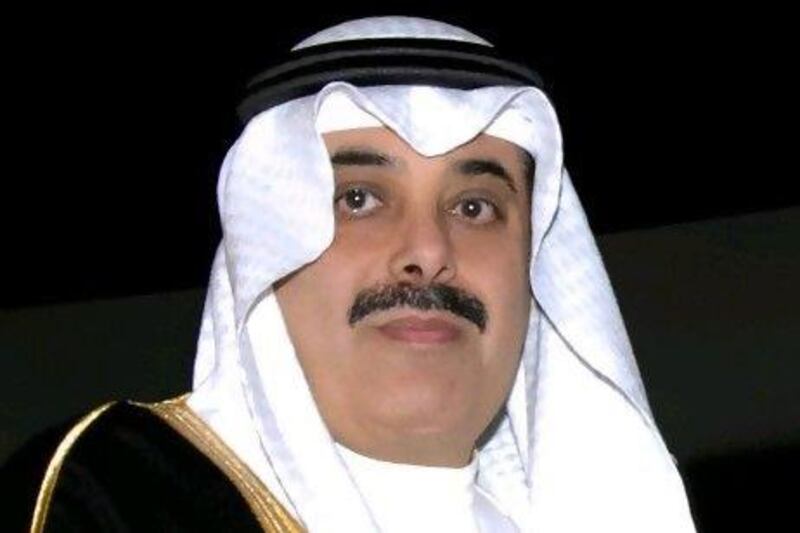A court in the Cayman Islands has lifted a freeze on the global assets of Maan Al Sanea, the Saudi businessman involved in a two-year dispute with the kingdom's Al Gosaibi family and more than 100 international banks.
The Al Gosaibis applied to have the freeze lifted after a legal action in June threw up new evidence concerning the family's claims of fraud, forgery and theft of about US$10 billion (Dh36.7bn) of their assets by Mr Al Sanea, who is related to them by marriage.
The affair has left a group of international and regional banks with about $16bn of unpaid debts and has tarnished Saudi Arabia's business reputation.
In the first statement he has made since the dispute broke with the collapse of two Bahraini banks in May 2009, Mr Al Sanea said: "A wrongful $9.2bn freezing order against me has today been lifted, with the courts recognising it should never have been imposed in the first place."
The court also ordered Ahmad Hamad Algosaibi & Brothers (Ahab), the family partnership, to pay Mr Al Sanea's legal fees incurred in the Cayman action, and the court would begin to assess damages Mr Al Sanea suffered as a result of the freeze, obtained by Ahab in July 2009.
Costs and damages could cost the Al Gosaibis millions of dollars. They have already been told by a London court to repay $250 million to HSBC and four other banks.
Charges have been taken against Al Gosaibi properties in London and elsewhere. Most of their assets in Saudi Arabia are pledged against debts there.
Mr Al Sanea said in a statement: "Since Ahab started its litigation scheme over two years ago, I have been resolute in my complete rejection of its desperate claims that I somehow defrauded the Al Gosaibis by borrowing large sums of money on their behalf without their knowledge through their Money Exchange division.
"As a UK court heard when Ahab finally admitted liability in June, the Al Gosaibis emphatically knew of the activities of the Money Exchange and had done all along. I also made clear to the courts two years ago that Ahab's partners were hiding documents that confirmed their knowledge.
"Their advisers also denied the existence of these documents and claimed that their 50-strong legal and accounting team would surely have found them had they existed.
"Three months ago such papers were found, mysteriously, in Saud Al Gosaibi's office [the managing director of Ahab] in Saudi Arabia …Ahab and its advisers - in particular, Deloitte, behind whom the Al Gosaibis hid in judicial proceedings - have a lot to answer for," his statement said.
In response, Eric Lewis, the New York lawyer coordinating the Al Gosabibis' global legal campaign, said: "Ahab voluntarily withdrew the world freezing order and did not seek a new one … as a further order did not serve any practical purpose. The idea that a month later this is a pivotal victory for Al Sanea or that it in any way vindicates him is simply wrong.
"There are two parallel and independent issues here: first, the Al Gosaibis' liabilities to the banks, even though there was significant fraudulent documents and lack of due diligence by many financial institutions; second, the criminal and civil fraud charges against Mr Al Sanea. Neither issue should be confused."





